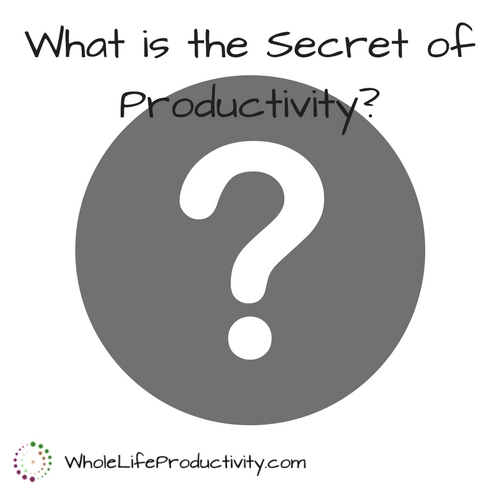
Are You Over-Systemized?
I’ve believed for a while it is possible to be over-systemized. At the point where our systems, whatever flavor they are, begin to take up more time than they save, they have crossed the threshold and have run up against the Law of Diminishing Returns, where at some point, each additional unit input yields less output.
Crossing the Threshold
So where is the sweet spot?
The ideal is to find a point where the input to your system yields the maximum output.
Overly complicated systems that are a burden to manage are going to be beyond the point of diminishing returns. On the other hand, systems that allow you to lose track of information or stuff aren’t yielding enough output.
Not Just Productivity
This also applies to organization. I remember reading an article saying that all pens and such out to be in a desk drawer. But it’s diminishing returns for me – when I want to write something down, having to fish everything out of a drawer is going to disrupt my thoughts and slow me down.
I’ve also found it applies to minimalism. While I like to have minimal stuff in my house, having just one set of cleaning supplies is actually counter-productive. When I see that the bathroom sink needs to be cleaned, for instance, I want to clean it then, not have to haul downstairs to get the supplies. Having duplicates saves me time and frustration.
How To Avoid Going Over the Top
My best bet for knowing when I go over the top is to pay attention to how I am maintaining the system. If I do not maintain it unconsciously, or if I end up with a backlog at some point, I know the system is too complicated.
I mostly get to that point if I try to make a system that will do everything for me, without my thinking about anything. The system is supposed to keep me on track so that I can think effectively; not automate my life entirely.
Looking at my in-place systems, I realized where the sticking points are, and I need to simplify those areas. Often times I digitize my processes before I have the process completely worked out.
Applying technology under those circumstances does not lead to efficiency; it merely makes inefficiency faster.
Likewise, when trying out a new organization scheme, I know I have gone over the top if I have to spend more than 2 seconds to figure out where I put something.
Look at your own systems. Are there sticking points? Are you resisting them? See if you are up against diminishing returns.




